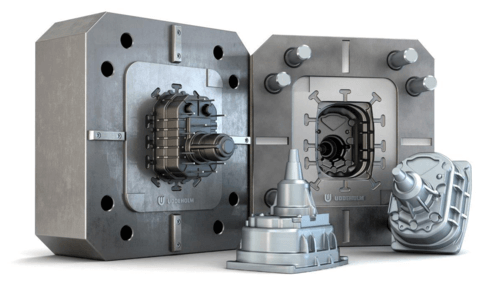What is it?
Tower management software refers to a specialized set of programs and applications designed to help tower companies efficiently manage their towers, sites, tenants, and business operations. As the demand for tower infrastructure and connectivity increases exponentially, tower management software has become essential for telecom operators and tower leasing companies to scale up, optimize processes, and drive better returns.
Managing Sites and Assets
Tower Management Software allows tower operators to maintain a centralized database of all their tower sites, infrastructure assets, and properties. Key details such as site addresses, asset specifications, lease agreements, and ownership documents can be digitally stored and easily accessed. Tower operators can map out their sites on GIS-based software for traceability. Asset management modules help track the lifespan, maintenance schedules, and performance metrics of physical assets like towers, shelters, generators, and remote radio heads (RRHs). This brings more transparency and control over a company’s physical infrastructure portfolio.
Streamlining Lease Management
An important use case is lease administration. Tower management solutions offer customizable lease and contract modules to digitally manage tenant agreements. Key lease details such as tenant and lessor names, equipment specifications, rental payment schedules, escalation terms, and termination clauses can be captured. Automatic rent invoice generation and payment tracking helps ensure on-time collections. Lease expiration alerts help renew contracts proactively. This brings visibility and simplifies compliance with lease agreements.
Optimizing Operations & Maintenance
Tower O&M is another major area impacted by such solutions. Preventive maintenance schedules for physical assets can be defined based on the asset type, installed location, and other parameters. Repair job orders along with necessary parts and tools requirements can be raised and assigned to field crews digitally for timely resolution. Real-time inventory of spare parts helps control warehouse stock. Installation of new tenant equipment or upgrades can also be efficiently planned and tracked digitally end-to-end.
Facilitating Site Acquisitions
For tower companies focused on portfolio expansion, software-based site acquisition management assumes significance. A database of prospective sites along with key attributes assesses their business viability. Financial models can evaluate the potential returns from acquiring new sites. Negotiation processes and legal paperwork involved in site purchases can be digitally managed for speed and compliance. This streamlines the entire site procurement lifecycle.
Enhancing business insights
Deeper business intelligence is another benefit. Tower management solutions equipped with analytics dashboards provide valuable insights into key performance metrics. Companies can track Overall Equipment Downtime ratios, tenant churn rates, Site Availability percentages, rental collection trends, and more at macro or micro levels. Benchmarking site or asset performance against peers helps prioritize improvement actions. Predictive analytics tools forecast tenant growth prospects based on demand patterns, aiding strategic decision making.
Adoption challenges
While tower management software has clear benefits, transitioning legacy processes completely on digital platforms poses initial challenges for many tower firms. Steep learning curves for users migrating from manual processes require training support. Upfront investment costs are also sizable for procuring and customizing suitable solutions. Data migration from outdated systems to new platforms needs proper planning. Change management plays a key role in driving user adoption and extracting the full potential of such solutions. To overcome inertia, tower firms need tech leadership backing and demonstration of quantifiable advantages to justify investments in the long run. With rising maturity, such solutions are bound to transform the economics and scalability of tower infrastructure businesses globally.
In conclusion, as tower infrastructure supporting mobile connectivity proliferates along with growing dependence on wireless networks, tower management software has become indispensable for operators managing large, geographically distributed tower portfolios. By digitizing processes end-to-end, these solutions streamline operations, enhance business visibility, optimize asset performance and promote growth – ultimately driving greener returns for tower firms. While implementations come with initial challenges, the long term advantages of transitioning legacy tower businesses onto digital platforms clearly outweigh such hurdles over time. Going forward, tower management software investments are set to remain a strategic priority area for telecom operators and independent tower companies worldwide.
*Note:
1. Source: Coherent Market Insights, Public Source, Desk Research
2. We have leveraged AI tools to mine information and compile it.



